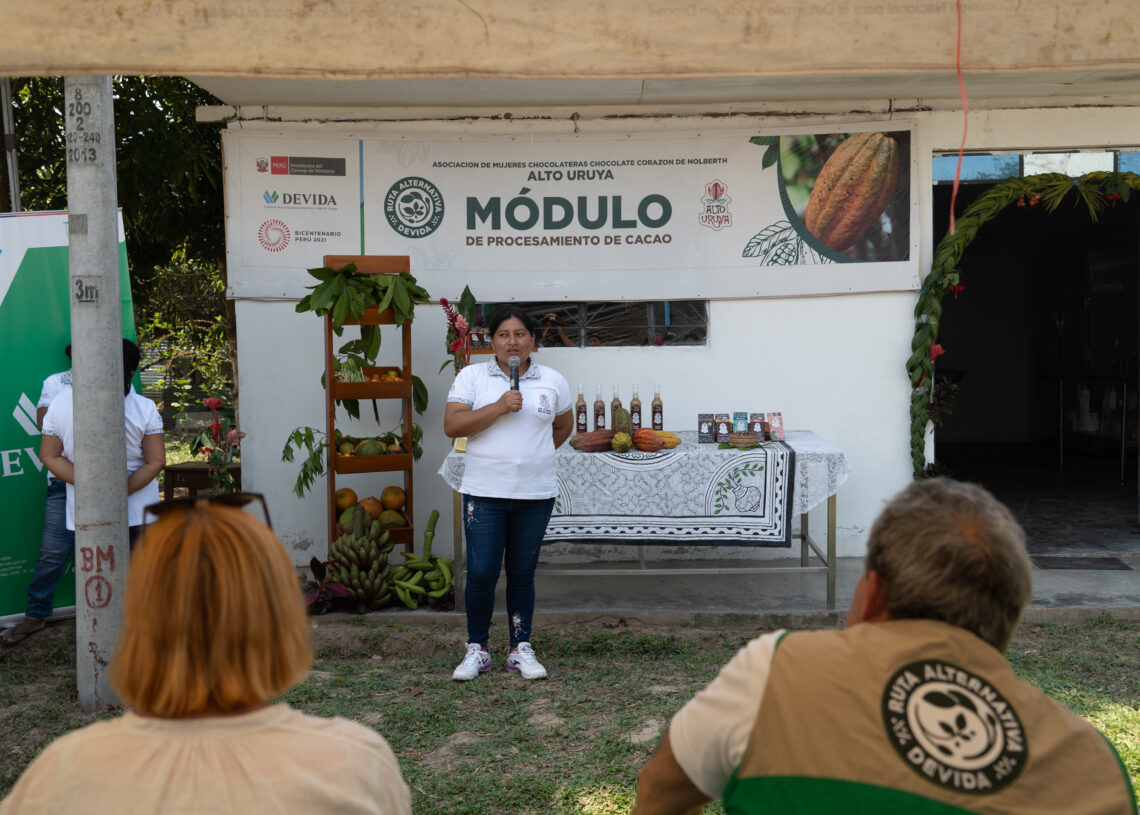The relation between environmental concerns and the illicit drug economy is increasingly recognized and addressed in the international drug policy debate. New opportunities to foster environmental and biodiversity conservation aspects within the framework of “green” Alternative Development (AD) policies have been emerging, with the private sector being an important player. Climate finance instruments can help to incentivize new community-based projects that simultaneously store carbon and deliver livelihood benefits. One instrument increasingly being used to offer additional income opportunities for small-scale farmers in AD projects, are “Payments for Environmental Services” (also known as Payments for Ecosystem Services or PES). These are payments made to farmers or landowners who agree to take specific actions to manage their land or watershed to provide environmental services. PES is a market-based instrument that is increasingly used to finance and incentivize conservation.
In this context, the third COPOLAD III webinar on “Alternative Development & the Environment” was organized by the Deutsche Gesellschaft für Internationale Zusammenarbeit (GIZ) GmbH on behalf of the German Federal Ministry for Economic Cooperation and Development (BMZ) in cooperation with Executive Secretariat of the Inter-American Drug Abuse Commission (ES-CICAD/OAS) on 15 December 2022. 17 Latin American and Caribbean countries and nearly 70 participants from government institutions, international organizations, and the private sector participated in the event which focused on the role of the private sector in “green” AD. Welcome remarks were given by the Benjamin Seidel, Senior Policy Officer at the Federal Ministry for Economic Cooperation and Development (BMZ) and Antonio Lomba, Chief of the Institutional Strengthening Unit at the Executive Secretariat of the Inter-American Drug Abuse Commission (ES-CICAD/OAS).
How can the private sector contribute to environmental protection in the context of AD? To discuss this question, the keynote speech about “Forest carbon credit management for community sustainability” was given by Patawee Tangkwa Chotkirativech, Senior Manager at the International Outreach Program of the Mae Fah Luang Foundation under Royal Patronage in Thailand.
The first session then explored direct coffee trade as an Alternative Development strategy. Lennart Clerkx, Founder of This Side Up Coffees and Juan Pablo Lasso Argote, Founder of Argote Specialty Coffee gave insights into their coffee cooperation. They outlined the importance of giving farmers financial security in order to gain trust before advancing to environmental commitments. Miguel Ortega, Specialized Advisor at GPDPD (GIZ) commented on the input and contextualized GIZ’s contributions to the endeavor in Colombia.
The second session highlighted nature- based climate solutions as a means to connect financial capital to social and environmental capital. The presentation by Adriana Henao, Principal of Partner Sourcing at Terra Global Capital was commented by Antonio Lomba, Chief of the Institutional Strengthening Unit at ES-CICAD/OAS.
In the Q&A sessions, interesting discussions about the importance of public private partnerships in achieving sustainable environmental protection and concepts such as PES emerged. LAC countries used the opportunity to share experiences of their countries. Finally, the Peruvian delegation announced their presidency of the CICAD Group of Experts on Comprehensive and Sustainable Alternative Development (GEDAIS).
Discussions will continue in the GIZ-led Working Group on Alternative Development and during the fourth and final webinar of the series on “AD & the Environment”.






